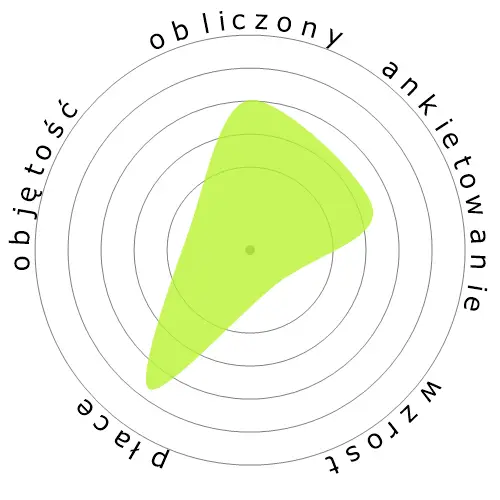Kapitanowie, Mates i Piloci Statków Wodnych




Ludzie również oglądali
Obliczone ryzyko automatyzacji
Niskie ryzyko (21-40%): Zawody na tym poziomie mają ograniczone ryzyko automatyzacji, ponieważ wymagają połączenia umiejętności technicznych i skoncentrowanych na człowieku.
Więcej informacji na temat tego, czym jest ten wynik i jak jest obliczany, jest dostępne tutaj.
Ankieta użytkownika
Nasi goście zagłosowali, że jest małe prawdopodobieństwo, iż ten zawód zostanie zautomatyzowany. To ocena jest dodatkowo wspierana przez obliczony poziom ryzyka automatyzacji, który szacuje 34% szansę na automatyzację.
Jakie są Twoje zdanie na temat ryzyka automatyzacji?
Jakie jest prawdopodobieństwo, że Kapitanowie, Mates i Piloci Statków Wodnych zostanie zastąpione przez roboty lub sztuczną inteligencję w ciągu najbliższych 20 lat?
Nastroje
Poniższy wykres jest zamieszczany wszędzie tam, gdzie istnieje znaczna liczba głosów, aby przedstawić istotne dane. Te wizualne reprezentacje pokazują wyniki ankiet użytkowników w czasie, dostarczając istotnych wskazówek dotyczących trendów nastrojów.
Nastroje w czasie (rocznie)
Wzrost
Liczba ofert pracy na stanowisku 'Captains, Mates, and Pilots of Water Vessels' ma wzrosnąć 2,3% do 2033
Całkowite zatrudnienie oraz szacowane oferty pracy
Zaktualizowane prognozy mają być dostępne 09-2025.
Płace
W 2023, mediana rocznej pensji dla 'Captains, Mates, and Pilots of Water Vessels' wynosiła 88 730 $, czyli 42 $ za godzinę.
'Captains, Mates, and Pilots of Water Vessels' otrzymali wynagrodzenie wyższe o 84,6% od średniej krajowej, która wynosiła 48 060 $
Płace z biegiem czasu
Objętość
Od 2023 roku zatrudnionych było 34 520 osób na stanowisku 'Captains, Mates, and Pilots of Water Vessels' w Stanach Zjednoczonych.
To oznacza około < 0,001% zatrudnionej siły roboczej w całym kraju.
Inaczej mówiąc, około 1 na 4 tysiąc osób jest zatrudnionych jako 'Captains, Mates, and Pilots of Water Vessels'.
Opis stanowiska pracy
Prowadzenie lub nadzorowanie operacji statków i jednostek wodnych, takich jak holowniki i promy. Wymagane posiadanie licencji wydanej przez Straż Wybrzeża Stanów Zjednoczonych.
SOC Code: 53-5021.00


Komentarze
Leave a comment
Why it is not happening? Mostly because of money but also the complexity of the problem.
Simple example: Average salary of a Safety Officer is 3000 USD. He is carrying out inspections and maintenance of firefighting equipment and other stuff. To automate only this process company will probably need to spend tens of thousands. Why would they if one can use this money now to scale one's business?
Besides navigation ship's crew has a lot of other critical roles. It will take a lot of scientific effort to set up new safe processes. Most marine companies don't have the necessary resources and infrastructure for that. I won't say a word about the lack of initiative and natural resistance of the industry to everything "new".
However, I also believe that there will always be some humans watching over ships at all times, whether on shore or elsewhere.
Zostaw odpowiedź na temat tego zawodu